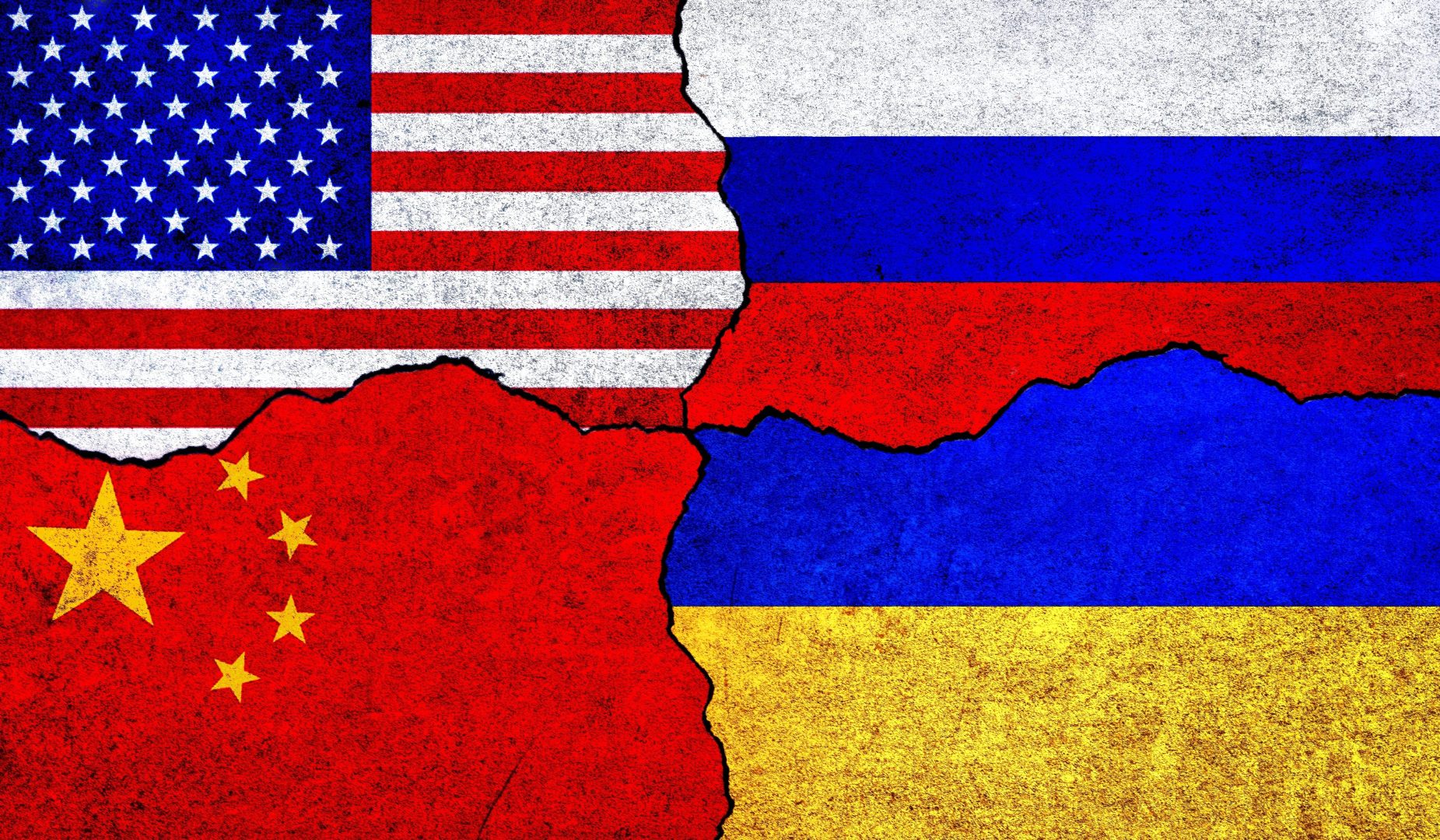


Get a free copy of Parental Rights & Education when you subscribe to our newsletter!

“The Russia-Ukraine war has significant implications for America’s posture towards both Russia and China and the future of America’s strong support for Taiwan.”
–WILLIAM WOLFE
The ongoing Russia-Ukraine war has had far-reaching consequences, not only for the countries directly involved but also for international relations. China (currently controlled by the Chinese Communist Party) has been particularly affected by the conflict, as it has been forced to navigate between its strong ties to Russia and significant diplomatic tensions with the United States.
China’s role in the Russia-Ukraine war has been a topic of much discussion. According to the BBC, China has become an increasingly important trading partner for Russia as it seeks to soften the impact of economic sanctions imposed by some countries in response to its invasion. The United States has said Beijing is considering supplying weapons and ammunition to Russia, allegations which China strongly denies. There is evidence that China is the biggest exporter of semiconductors (microchips) — often through shell companies in Hong Kong and the UAE — to Russia. Some Chinese companies are also supplying civilian drones, exploiting the grey space between military and civilian purposes.
As the war in Ukraine continues to unfold, it is clear that the implications for Chinese-American relationships are significant. This article will examine the role of China in the Russia-Ukraine War and how it may impact Chinese-American relationships in the future.
China-Russia Relations: An Overview
Foreign policy experts have varying views on the relationship between China and Russia. Some see it as a “marriage of convenience,” with both countries reaping mutual and individual benefits from it. Others argue that the relationship is grounded in a “realist” view of the world, with both countries resisting what they see as the West’s encroaching geopolitical and ideological ambition (again, this is from their perspective — not necessarily a statement of truth or reality).
China-Russia relations have always been complicated and multifaceted, shaped by historical alliances, shared ideologies, and geopolitical considerations. However, it is important to note that the relationship between China and Russia is not without its challenges and complexities, with diverging interests and potential areas of conflict. As the Council on Foreign Relations explains, “In the past, tensions have flared over issues including communist doctrine, their extensive shared border, and the COVID-19 pandemic.”
Still, both countries have emphasized their strategic partnership and cooperation on various fronts, such as trade, energy, and military exercises. Additionally, China and Russia have often found common ground in their opposition to Western dominance and their desire to counterbalance American influence on the global stage. Understanding the dynamics of this relationship is crucial in assessing China’s role in the ongoing Russia-Ukraine War and its implications for Chinese-American relationships.
China’s Reaction to the War in Ukraine
China’s reaction to the war in Ukraine has been cautious and strategic. According to Dake Kang at the AP,
“China has maintained a consistent position on the war: neutral on paper, but favoring Russia in practice, with frequent state visits and joint military drills between the two nations. It’s a delicate balance, calibrated carefully to avoid damaging relations with Russia or Europe, both of which Beijing sees as critical to countering American power.”
So, on one hand, China has expressed support for Ukraine’s territorial integrity and peaceful resolution of the conflict. This stance aligns with China’s purported policy of “non-interference in the internal affairs of other nations” (which is not true, though, as the CCP is active all around the world in acts of espionage, economic blackmail, and destabilization). On the other hand, China has refrained from openly criticizing Russia, a close ally and important trading partner. This balancing act is a reflection of China’s desire to maintain stable relationships with Russia. China has called for peaceful dialogue and a negotiated settlement, emphasizing the importance of maintaining regional stability. While China’s official stance may appear to be “neutral” they are clearly taking subtle actions to continue to support Russia and strengthen their ties, even during the war.
American-Chinese Communist Party (CCP) Relations
The relationship between America and the CCP is complex, to say the least. America’s opposition to the CCP is rooted in several key concerns, including the perceived horrors and evils of communism, China’s record of human rights abuses, and its actions against its own citizens — as well as its desire to conquer the United States and displace America as the world’s leading superpower.
The CCP has a decades-long track record of severe human rights abuses. Examples include the mass detention of Uighur Muslims in Xinjiang, the suppression of Tibetan culture and religion, and the crackdown on pro-democracy activists in Hong Kong, not to mention the Tiananmen Square Massacre. These actions are seen as clear violations of basic human rights, such as freedom of speech, religion, and assembly. Now, the Ukrainian conflict has added another layer of complexity to this relationship.
The Russia-Ukraine war has further impacted America’s relationship with China. According to the Brookings Institution, even if the war in Ukraine were to end soon, events to date have already transformed the European security environment. American strategists anxious to prioritize China as the “pacing challenge” for U.S. defense strategy may object to any increase in the resources devoted to European security. However, ensuring that Russia does not further destabilize Europe will have to be just as high a priority in the years to come as the China threat.
How the Ukraine War Might Drive Russia Toward China
The ongoing conflict in Ukraine has the potential to drive Russia towards China for several reasons. Firstly, Russia may seek to strengthen its strategic partnerships in response to the geopolitical challenges it faces in Europe. China, with its growing global influence, could offer Russia the support it needs. Additionally, the trade and economic ties between the two countries could be further deepened, providing both with new opportunities for growth. Lastly, the shared opposition to Western dominance could bring Russia and China closer together, as they both seek to counterbalance American influence.
As for whether American support for Ukraine is driving Russia into a deeper alliance with China, experts from the Center for Strategic and International Studies (CSIS) argue that the Sino-Russia relationship will only get deeper as a result of the war. They explain that “Moscow and Beijing share a view of the United States as their most important security challenge, and together they seek to erode U.S. power and influence.” They further posit that “unless Russia escalates its tactics in Ukraine, perhaps by using chemical or nuclear weapons, Russia-China relations will continue to deepen as a result of the conflict, regardless of its outcome.”
This deepening relationship between China and Russia is seen as a serious problem by many Americans. According to the Pew Research Center, around nine in ten U.S. adults say it’s at least a “somewhat serious” problem for the United States, and a 62 percent majority say it’s a “very serious problem.” More Americans now also describe China as the world’s leading economic power.
Finally, there are increasing concerns that Russian’s invasion of Ukraine, if successful, will embolden China to invade Taiwan. In an article at The Atlantic published shortly after Russia invaded Ukraine, Michael Schuman argued that “As Russian tanks roll over Ukraine, Vladimir Putin’s crisis will reverberate around the world, possibly most dangerously in the Taiwan Strait. An attempt by Beijing to claim Taiwan by force has just become more likely.”
In conclusion, the Russia-Ukraine war has significant implications for America’s posture towards both Russia and China and the future of America’s strong support for Taiwan. The deepening alliance between these two countries is a cause for concern and is being closely watched by American strategists.
The Church must be involved in public discourse and influence. That’s why we write — so our readers can be equipped to understand and pursue righteous change in the world. For more timely, informative, and faith-based content, subscribe to the Standing for Freedom Center newsletter.
Christian conservative news and issues that matter. Curated just for you!
